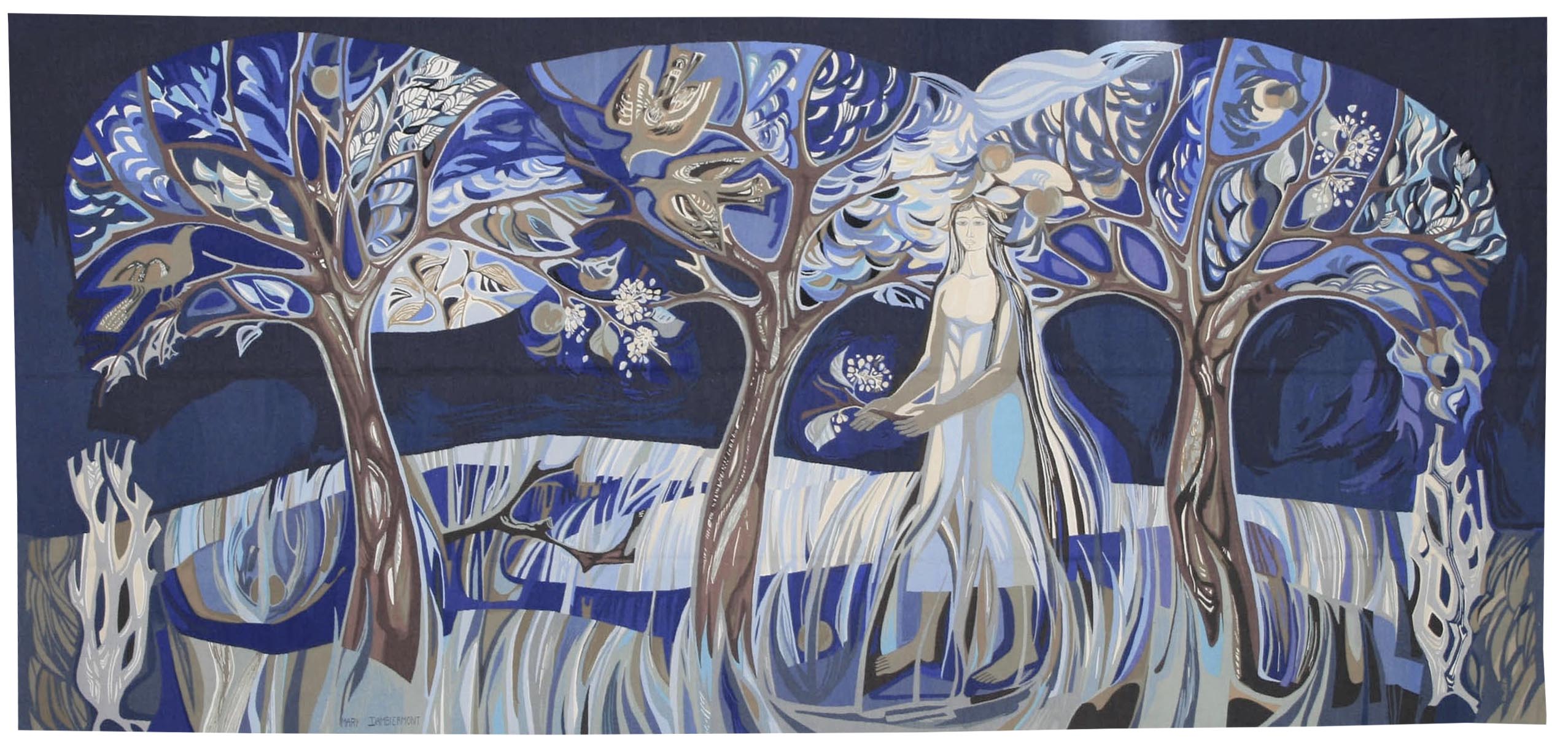A tous vents (Windblown)
Aubusson tapestry woven in the Tabard workshop.
Complete with certificate of origin.
1962-1963.
Lurçat’s artistic production was immense : it is however his role as the renovator of the art of tapestry design which ensures his lasting renown. As early as 1917, he started producing works on canvas, then in the 20’s and 30’s, he worked with Marie Cuttoli. His first collaboration with the Gobelins workshop dates back to 1937, at the same time he discovered the tapestry of the Apocalypse which was essential in his decision to devote himself to tapestry design. He first tackled the technical aspects with François Tabard, then on his installation at Aubusson during the war, he established his technique : broad point, a simplified palette, outlined cartoons with colours indicated by pre-ordained numbers.
A huge production then follows (over 1000 cartoons) amplified by his desire to include his painter friends, the creation of the A.P.C.T. (Association des Peintres-Cartonniers de Tapisserie) and the collaboration with the art gallery La Demeure and Denise Majorel, and then by his role as a tireless advocate for the medium around the world.
His tapestries reveal a pictorial world which is specifically decorative, with a very personal symbolic iconography : cosmogony (the sun, the planets, the zodiac, the four elements…) stylised vegetation, fauna (rams, cocks, butterflies, chimera …) standing out against a background without perspective (voluntarily different from painting) and, in his more ambitious work, designed as an invitation to share in a poetic (he sometimes weaves quotations into his tapestries) and philosophical (the grand themes are broached from the wartime period onwards) vision whose climax is the “Chant du Monde” (Song of the World) (Jean Lurçat Museum , ancien hôpital Saint Jean, Angers) which remained unfinished at his death.
Spectacular cartoon (27 m2 !) and an exceptional private commission for a specific place (the hall of the patron’s home) that Lurçat received towards the end of his life where he brings together a busy profusion of his signature motifs : sun, stars, butterflies, but also and more rarely, tortoise, cat, .. The correspondance exchanged between Lurçat and his patron reveals his great accessability (at a time when Lurçat, at the height of his fame, is constantly in demand and spends much of his time on the “Chant du Monde”) and the depth of his well-argued reflection in response to the commission : the self-proclaimed “doctor of wools” chooses a yellow background (favoured over black “too solemn for the hall in the home of a young couple”), “the wall covered from end to end ...” “a royal solution” “according to the tradition of great tapestry-making”,... As can be seen, the patron saw no reason to quibble with any of these artistic choices.
Origin :
Private collection, Lyon (a copy of the correspondance between Lurçat, the Tabard workshop and the patron will be given to the purchaser)
Bibliography :
Exhibition catalogue Jean Lurçat, Tapisseries nouvelles, Maison de la pensée Française, 1956
Exhibition Catalogue Lurçat, 10 ans après, Musée d'Art moderne de la ville de Paris, 1976
Exhibition catalogue Les domaines de Jean Lurçat, Angers, Musée Jean Lurçat et de la tapisserie contemporaine, 1986
Exhibition Catalogue L'homme et ses lumières, Angers, Musée Jean Lurçat et de la tapisserie contemporaine, 1992
Symposium Jean Lurçat et la renaissance de la tapisserie in Aubusson, Aubusson, Musée départemental de la tapisserie 1992
Exhibition catalogue Jean Lurçat, Donation Simone Lurçat, Académie des Beaux-Arts, 2004
Jean Lurçat, le chant du monde Angers 2007
Gérard Denizeau, Jean Lurçat, Liénart, 2013



